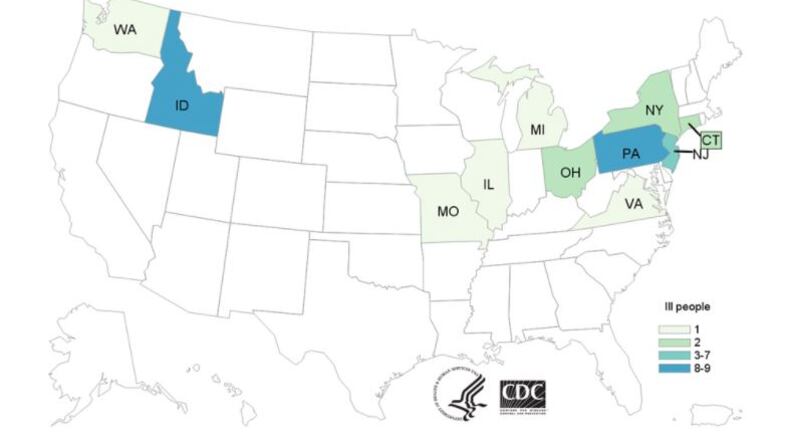The outbreak was first reported earlier this week, though at the time there were only 17 cases reported in seven states.
RELATED: See how many people in your county bought ACA insurance plans
Both Ohio cases were reported by 24-year-old women from Mahoning County. The onset of the first case was March 24 and onset the second case was March 26.
The CDC said it collected information that indicates the outbreak is connected to chopped romaine lettuce from the Yuma, Ariz., region.
No common grower, supplier or brand has been identified. Restaurants and retailers should ask their suppliers about the source of their chopped romaine lettuce and not serve or sell any from the Yuma region.
Symptoms of an E. coli infection vary but often include severe stomach cramps and (often bloody) diarrhea. Most people get better in five to seven days. Infections can be mild but can also be severe or life-threatening.
If you think you have E. coli, the CDC advises you to speak with your health care provider or public health department and write down what you ate in the week before you get sick.
RELATED: Consumers could save on prescriptions after Ohio bans ‘gag orders’
People started reporting illnesses that are part of the outbreak between March 22 and March 31.
The Mahoning County case onset was March 24, said Melanie Amato, spokeswoman for Ohio Department of Public Health.
DNA fingerprinting is being used to identify illnesses that are part of the same outbreak. Some people might not be included in the CDC’s case count if officials weren’t able to get bacteria strains needed for DNA fingerprinting to link them to the outbreak.
RELATED: Dayton health center getting new home, new name
To reduce your risk of an E. coli infection, you can:
- Wash your hands. Wash hands after using the restroom or changing diapers, before and after preparing or eating food, and after contact with animals.
- Cook meats thoroughly to kill harmful germs.
- Thoroughly wash hands, counters, cutting boards, and utensils after they touch raw meat.
- Wash fruits and vegetables before eating.
- Avoid raw milk, other unpasteurized dairy products, and unpasteurized juices.
- Don't prepare food or drink for others when you are sick.
About the Author
